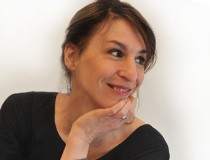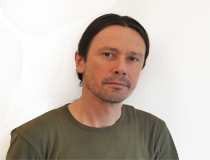|

The 6th International Competition of Young Dance Performers OPUS 1 – short dance piece 2014 Celje, Slovenia, 7th June 2014
The aim of the competition is to promote contemporary dance and discover fresh talents. The aim is not to push for competitiveness, but to foster creativity of young performers.
The 6th International Competition of Young Dance Performers OPUS 1 – short dance piece 2014 (Celje, Slovenian National Theatre Celje, 7th June at 5 pm) is open to dancers born between 1990 and 2000, who can apply with a:
-
Solo dance piece which is both conceived and choreographed by the performing dancer
-
A duet, which is both conceived and choreographed by the performing dancers - shared authorship
-
TOPIC: I Wish For…
The organiser of the competition publishes a topic every year that the young dance performers must use as a basis for their short dance piece. The annual topics are meant to stimulate critical thinking about specific issues and give them the means to learn about, research and study specific topics or dance artists. This year’s topic inquires about the desires of the young, using a simple question “What do you desire?” to challenge them into examining their wishes, origins and ways to make them true.
-
Age groups and lengths of short dance pieces:
-
Group B (born between 1996 and 2000) – maximum 4 minutes;
-
Group C (born between 1990 and 1995) – maximum 5 minutes
The jury will be composed from three renowned international dance experts. As soon as it is confirmed, it will be announced. In previous years, jury members included Susan Quinn, Matej Kejžar, John Taylor, Magdalena Reiter, Loup Abramovici… (Members of the Jury)
The prizes will be awarded for the best short dance piece (group B: EUR 300, group C: EUR 800); the best concept (group B: EUR 150, group C: EUR 400); and the best dance performance (group B: EUR 150, group C: EUR 400).
The deadline for applications is 22 April 2014.
The filled-in application form must be sent to: JSKD, for “OPUS 1”, Štefanova 5, PO Box 1699, 1000 Ljubljana, Slovenia or by e-mail to nina.mesko@jskd.si, by 18 April 2014. Please note that participation will only be possible if a correctly filled out application form that includes a description of the piece’s concept and a video of the short dance piece are sent on time.
The jury will select the competitors on the basis of the received videos of the pieces. The selection shall be published on the http://www.jskd.si website by 8 May 2014 at the latest.
The chosen competitors shall also be notified individually.
Please make sure that you read the rules and instructions and follow them to the letter.
More information, photographs and videos of previous competitions can be viewed at: http://www.jskd.si
General information and contacts:
Republic of Slovenia Public Fund for Cultural Activities (JSKD)
Štefanova 5, PO Box 1699, 1000 Ljubljana
Nina Meško
Tel.: 00 386 (0)1 24 10 522
Fax: 00 386 (0)1 24 10 510
E-mail: nina.mesko@jskd.si
Topic: I Wish For…
“Love and desire are the spirit’s wings for great deeds.” / Johann Wolfgang von Goethe
Desire is a sense of longing for a person or object or hoping for an outcome. Desire is one of the most important feelings as it paves the way to a variety of other emotions. If a desire is fulfilled, a human being experiences happiness. If it is not, a person feels disappointment or unhappiness. If a person passively expects that his or her wishes will be fulfilled by someone else or that it will happen on its own accord, we talk about hope. But it is the motivational aspect of desire that gives us the energy to try and meet it and pulls us forward. This is why wishes are important, because desires are the source of life.
In Fairytales a wish is a supernatural demand placed on the recipient's unlimited request. You can wish on many things for example: wishing wells, dandelions when you blow the seeds or light them on fire, stars and much more.
In literature the theme of desire is at the core of the romance novel, which often creates drama by showing cases where human desire is impeded by social conventions, class, or cultural barriers. As well, it is used in other literary genres, such as gothic novels as Dracula in which desire is mingled with fear and dread.
In philosophy, desire has been identified as a philosophical problem since Antiquity. Plato in The Republic argues that individual desires must be postponed in the name of the higher ideal. Hobbes (1588–1679) proposed the concept of psychological hedonism, which asserts that the "fundamental motivation of all human action is the desire for pleasure." Spinoza (1632–1677) had a view which contrasted with Hobbes, in that "he saw natural desires as a form of bondage" that are not chosen by a person of their own free will.
In the field of marketing, desire is the human appetite for a given object of attention. Marketing and advertising companies have used psychological research on how desire is stimulated to find more effective ways to induce consumers to buy a given product or service. While some advertising attempts to give buyers a sense of lack or wanting, other types of advertising create desire associating the product with desirable attributes, either by showing a celebrity or model with the product. Nike's "Just Do It" ads for sports shoes are appealing to consumers' desires for self-betterment.
A desire is often an expression of the unconscious. Some wishes might be out-of-the-ordinary and we sometimes do no know the real reasons for having them. What do you wish for?
A short guideline for mentors and performers:
The obligatory part of the creative process should also be translating your ideas and procedures into words. The same as every year, you have to attach a description of your creative process to your application (literary origins, thoughts, procedures, decisions…). Think about it and work on it so as to genuinely delve into the depths of your short dance piece.
Mentors should discuss the topic with the young performers, while the latter should be autonomous and creative in shaping their ideas and pieces. Mentors should also spend more time with younger dancers in order to bring the topic closer to them on a level that they can understand.
The role of mentors in creating the short dance piece is to counsel, lead and guide the children/young performers in creating their own ideas, dance expressions and autonomous choreographies.
RULES
A – GENERAL TERMS AND CONDITIONS
1. The competition is open for dancers born between 1990 and 1999. They are divided into two age groups: B (born between 1996 and 1999) and C (born between 1990 and 1995). They can compete in two categories: original solo dance piece (the performer is also the author or choreographer of his or her dance) and a duet - team work, both collaborators must be listed under the "concept and dance" entry. If the piece wins a prize, the two share it according to their own agreement.
2. The length of the piece: maximum 4 minutes for group B, maximum 5 minutes for group C.
3. Every team (association, school, studio, centre) can submit a maximum of six choreographies for any chosen age group. Every individual can submit a maximum of two short dance pieces, which must not be submitted in the same category (e.g. one original solo dance and one team work - duet)
4. All applicants must record a video of their finalised piece (choreography, execution, music, outfits) and save it on a DVD that has to be sent alongside the application form or upload a HD quality video on the youtube and share the link. The competitors shall be selected by the expert jury after viewing all of the submitted videos. The competitors must not replace the dancers or change the topic, title of the piece, concept, music, outfits, props and choreography before or at the competition.
5. The stage will be lit and bare. It will have no scenery, special effects or background images. The competitors must provide by themselves for any necessary props or simple equipment. The dimensions of the stage are 7 metres (width) x 9 metres (depth). The music should be recorded on a CD. Technically unsuitable recordings shall be eliminated.
6. On the day of the competition, the competitors can have a dress rehearsal, in accordance with a strict schedule. The members of the jury will also be present at the rehearsal, but will not grade the competitors.
7. In case of injury, disease or similar occurrences, a plausible cancellation must be sent to the organiser as soon as possible in writing, by e-mail or fax.
8. The organiser is not in any way liable for any damages that could occur during the event (lost or stolen objects etc).
9. The organiser is not in any way liable for any injuries of the performers.
10. Recording or taking photographs of the competition is not allowed, unless agreed previously with the organiser.
11. The organiser shall not cover transport costs, but will provide the accommodation for competitors.
B - APPLICATIONS
1. A correctly filled-out application form must be sent by mail by the application deadline, otherwise participation will not be possible.
2. Those who submit incomplete application forms or fail to attach the obligatory concept of the short dance piece and DVD/link to the video shall be automatically disqualified.
C - JURY
1. The international jury shall be composed of three renowned dance experts. One of them shall serve as the head of the jury. The members of the jury shall jointly view the videos and select the competitors for the event. The jury shall be present at the dress rehearsal. The winners shall be selected on the day of the competition. The decisions of the jury are irrevocable and shall be announced at the end of the competition. The organiser can replace the members of the jury in case of illness, inability to take part in the jury or any other relevant cause.
2. The jury shall select the best short dance piece, the best concept and the best performance for every age group. After the end of the competition, the jury shall have 15 minutes to select the winners and shall afterwards hand out the prizes to the winners.
3. If the jury discovers at the dress rehearsal that some of the competitors failed to adhere to the topic of the competition and/or its terms and conditions, it can, at its sole discretion, allow them to perform at the event. However, such participants shall not take part in the competition and shall not be graded and ranked.
D - PRIZES
1. The prizes shall be awarded for the best short dance piece, the best concept and the best performance for both age groups (B and C).
2. The prizes shall be awarded for: the best short dance piece (group B: EUR 300, group C: EUR 800); the best concept (group B: EUR 150, group C: EUR 400); and the best dance performance (group B: EUR 150, group C: EUR 400).
3. The winners shall be announced and the prizes awarded after the competition.
4. The monetary prize shell be awarded to the applicant, who then distributes it between the mentor and performers in line with their previous arrangements.
5. Every competitor shall receive a certificate of attendance.
The event is organised and managed by the JSKD and its Celje regional office. The members of the organising board shall be selected by the organiser. The organising board drafts and designs the concept of the event, selects the members of the jury and manages the event.
Application Form
Jury
Videos from previous competitions on YouTube
Additional Informations
 |
Nina MEŠKO
samostojna strokovna svetovalka
za ples
T: (01) 2410 522
F: (01) 2410 510
E: nina.mesko@jskd.si |
 |
Franci Cotman
strokovni sodelavec za alternativno in multimedijsko dejavnost
T: 01/ 2410 523
F: 01/ 2410 510
E: franci.cotman@jskd.si
|
|




